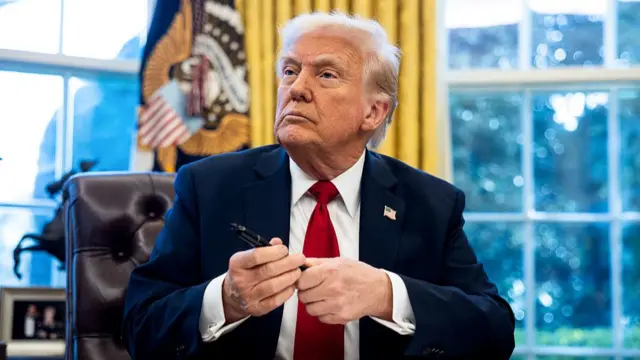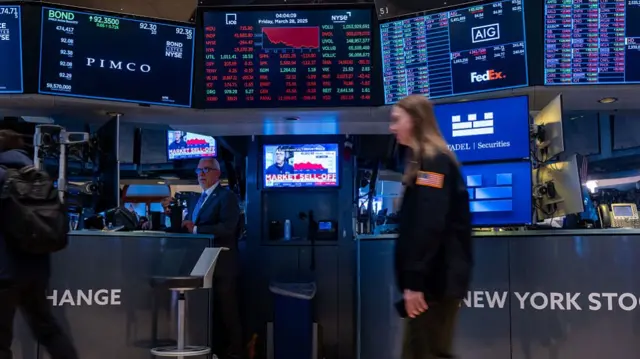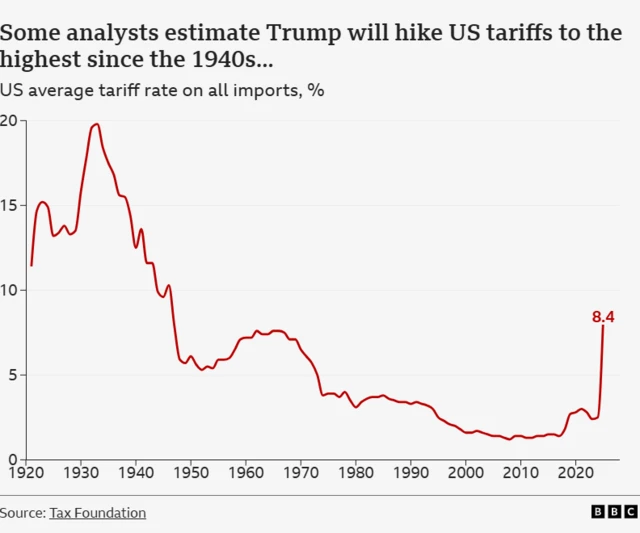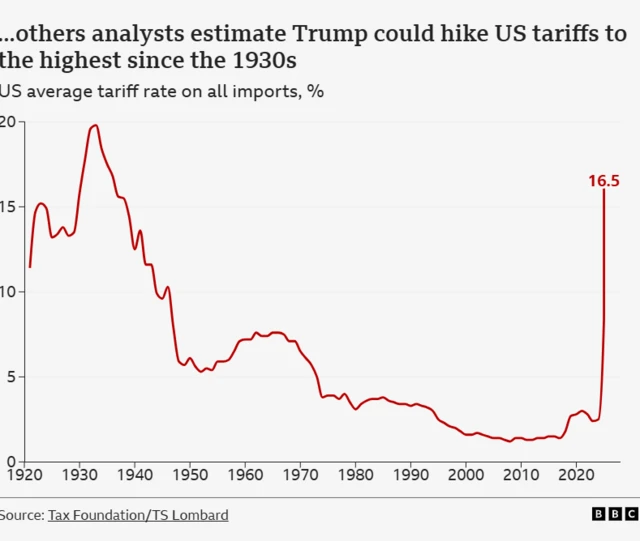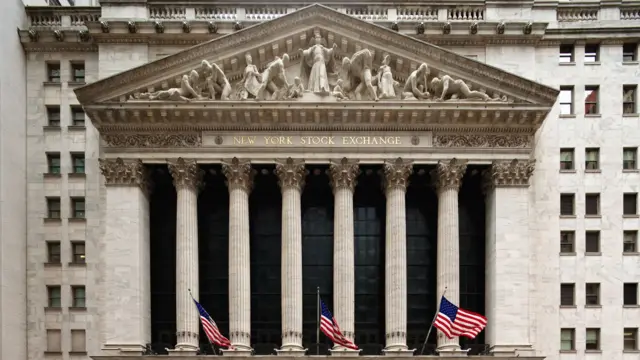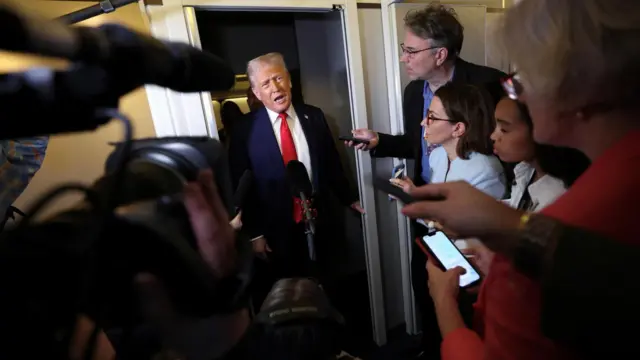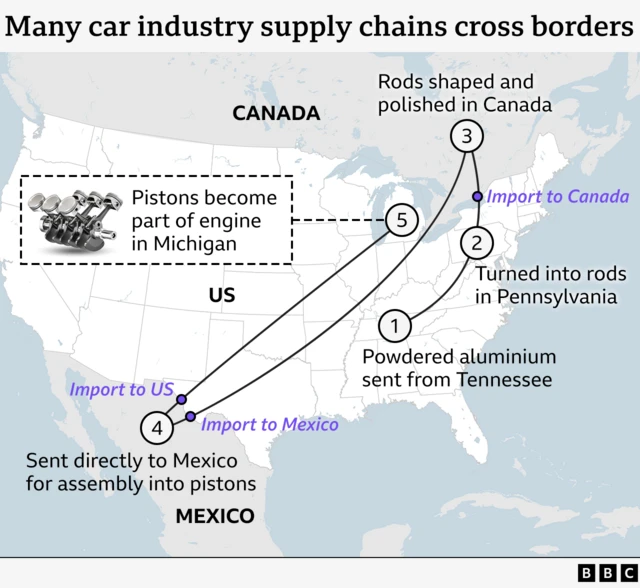US collectors stock up on champagne ahead of tariffspublished at 16:35 BST 31 March
 Michelle Fleury
Michelle Fleury
BBC World News Correspondent in New York

These are anxious times for wine sellers.
Josh Cohen, co-founder of Flatiron Wines and Spirits in New York, says tariffs would be devastating for the US importers he works with.
"Anybody that they employ, all the taxes they pay are supported by wines that they import from France. If there is a 200 % tariff, there's simply no way for them to sell those wines anymore in America and they'll close up. That'll be it, they'll go out of business."
European goods are expected to be a prime target of upcoming tariffs - with EU alcohol already facing a tit for tat threat of 200% duties.
President Trump threatened the steep levy on European alcohol after the EU announced plans to impose a 50% tariff on American whiskey.
To beat tariffs, some wine enthusiasts are buying more.
"Some champagne collectors have bought very deeply," Cohen says.
His advice: "If you're organising a wedding for instance and you have your heart set on a specific wine, well don't wait til August to buy it."
